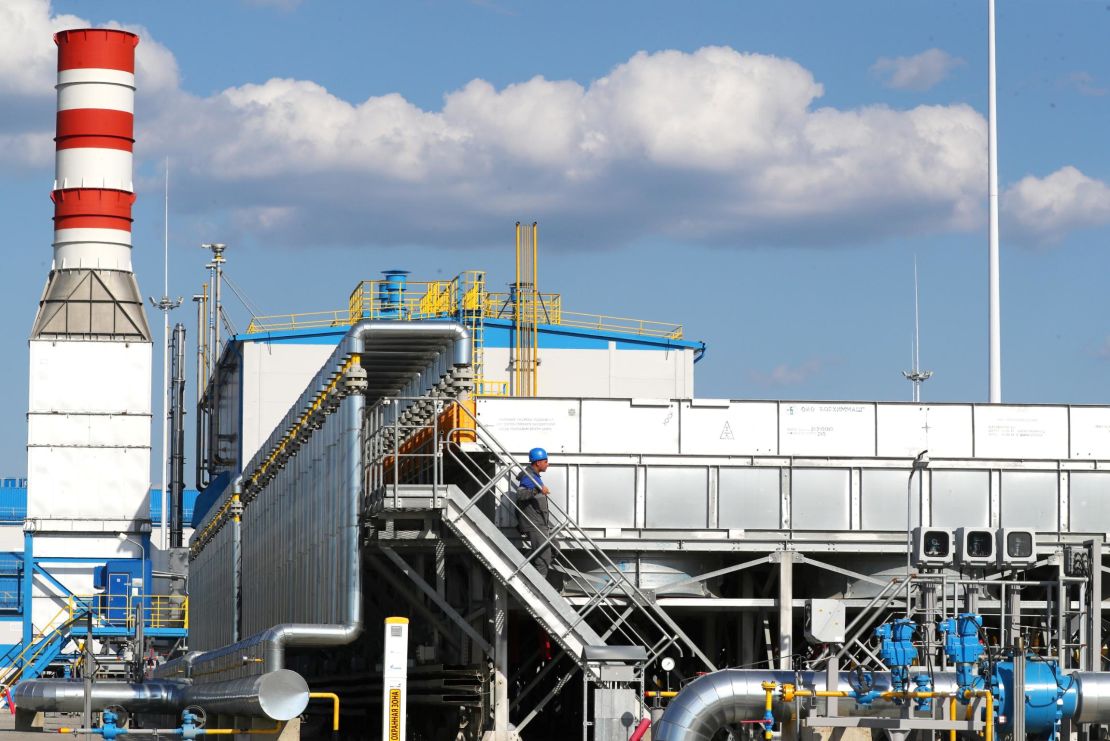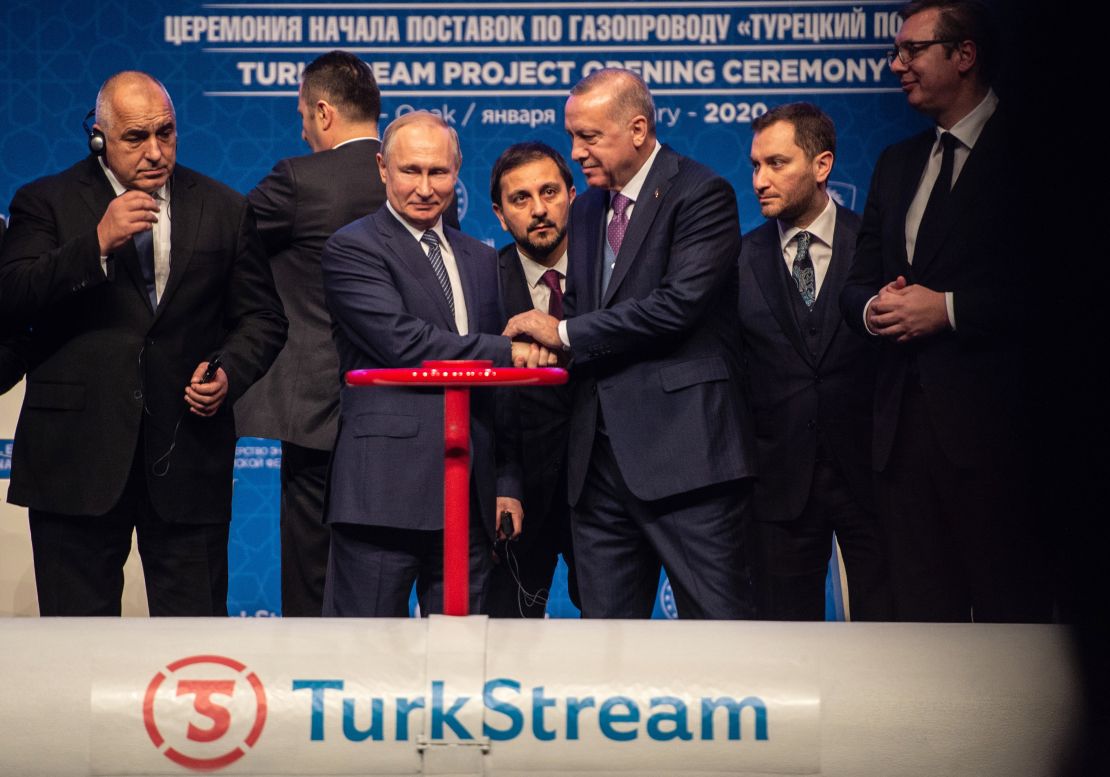Over the past decade, Vladimir Putin’s resurgent Russia has been a perpetual concern for many in the West.
These concerns are not baseless. It’s undeniable that Putin and the President’s inner circle have grown in confidence during this period. Whether it be annexing parts of another nation, backing a dictator in a foreign war or poisoning dissidents on Russian soil, Putin’s Kremlin seemingly no longer seeks validation from a West that has allowed Moscow’s belligerence to grow with little effect on his behavior.
The world has been reminded of Russia’s confidence in recent weeks. As gas prices soar across Europe due to a reduced supply of Russian gas and Putin severs his nation’s loose diplomatic ties to NATO, it’s worth examining how gravely Western policymakers have misread Putin and ignored his willingness to use the weapons at his disposal.
The Europe-wide energy crisis reveals a very powerful tool that provides Russia with leverage in its relationship with Europe: its gas reserves.
It is no secret that many European countries, including Germany, are reliant on Russian supplies of natural gas. The recent shortages have hammered home not just the economic, but geopolitical risks of this dependency.
While Russia is meeting its existing obligations to supply European countries, analysts say it could increase exports to enable storage ahead of what could be a cold winter, thus reducing costs and calming nerves.
The question from the Russian perspective is, why should we? Moscow is still awaiting German regulatory approval for Nord Stream 2, a controversial pipeline that would connect Russia to Germany and supply large amounts of gas to Western Europe. “If the German regulator hands its clearance for supplies tomorrow, supplies of 17.5 billion cubic metres will start the day after tomorrow,” Putin told a televised forum on Thursday, blaming the recent gas crisis and high prices on the EU’s energy policy, Reuters reported.
The pipeline is controversial because many see it as a geopolitical influence project for Moscow, a fear that wasn’t tempered when Russia’s Deputy Prime Minister Alexander Novak said earlier this month that “early completion of the certification” for Nord Stream 2 would help “cool off the current situation.”
Aside from the financial and geopolitical advantages that might come from Europe’s reliance on Russian gas, it also helps play into a domestic political narrative that has evolved over time in Russia: The West keeps getting things wrong.

“The core of this narrative is that Europe and the West needs to rethink its broken policies, be they on energy, foreign intervention or nation building,” says Oleg Ignatov, a senior analyst at Crisis Group in Russia.
“Ten years ago, this argument was more defensive, as the Kremlin wanted to protect itself from criticism from Western governments or NGOs. But now Russia can argue that Western policies failed in Libya, Syria and now Afghanistan so badly that Russia’s approach has actually been correct all along,” he adds.
Western failure and Russian success are, of course, relative to the priorities of each party. Putin has said that the fall of the Soviet Union was the “greatest geopolitical tragedy” of the 20th century.
When you factor this into so much of Putin’s behavior over the last decade – annexing Crimea, gaslighting the West over military action in Syria by denying Russia’s activity, stirring tensions between NATO and Turkey – it becomes easy to build an image of a leader trying to restore pride to his country and only too happy to exploit opportunities provided by na?ve global counterparts.

“Since the end of the Cold War, many in Putin’s generation have believed it was still in a political war with the West,” says Mark Galeotti, honorary professor at University College London, currently based in Moscow.
“This became more acute after the annexation of Crimea in 2014 and is why you now see a Russia more comfortable with putting troops on international borders, spreading disinformation and going after political dissidents. As far as they’re concerned, this is a war footing,” Galeotti says, before adding that “for the West, however, Russia is extremely irksome, but not actually that much of a threat.”
Some argue that Putin’s relatively limited threat has bred a lackluster Western policy in the face of Russian aggression. This, in turn, has meant the Russian President can carry out hostile acts with very few consequences.
The logic goes something like this. Russian agents poisoning a Russian ex-spy on British soil is of course sinister and menacing. However, it poses little actual threat to the UK, but going further than placing sanctions on individuals close to Putin could be more hassle that it’s worth.
This, potentially, plays into Putin’s hands, as it allows him to spin these events as proof that he is an untouchable strongman sticking it to the West, a theme he warmed to in a speech at the annual Valdai Discussion Club in Sochi on Thursday evening in which he slammed the US for the “mess” it created in Afghanistan.
“The West’s long-term failure has been treating each hostile act as an isolated incident, rather than seeing the overall pattern of a Russia that has no desire or interest in playing by its rules,” says Keir Giles, a senior fellow at Chatham House and author of the forthcoming book “How Russia Gets Its Way.”
This, Giles argues, is at the heart of everything happening right now.
“Russia is becoming more open and direct. When Russia exploits Europe’s gas crisis to force through its Nord Stream pipeline project, or cuts all remaining links with NATO, it’s done openly and there is no longer a pretense? that Moscow is working towards good relations with the West. It’s the same pattern that we see domestically within Russia – the increased repression is now overt and accelerating, because the Kremlin no longer cares.”
Limited consequences for the West, of course, provide little comfort to those who oppose Putin inside and outside of Russia.
“Putin is an opportunist. NATO’s disunity is the greatest gift he can receive,” says Riho Terras, former commander of the Estonian Defense Forces. “German reliance on Russian gas is a problem for those of us who share a border as it undermines unity. Brexit might be good for the UK, but it raises questions of a European army which would obviously be weaker than NATO.”
Some believe that Putin’s greatest asset has been hysteria and overstating of the threat he poses in some part of the West, combined with limited pushback from powerful nations, including the US, for his sincere hostility.
“Every time an opportunity appears, he will take it. It happened in Ukraine, it happened in Georgia. He only understands strong messages and if we keep showing disunity he will respond in kind. He is a streetfighter. The West is trying to figure skate around Russia, but Putin plays ice hockey,” says Terras.
Opposition figures in Russia do believe that the West can take action that could weaken Putin’s position.
“Personal sanctions against the people close to Putin, who are involved in corruption and human rights abuse, will go a long way towards achieving this goal,” says Vladimir Ashurkov, an opposition politician and Executive Director of opposition leader Alexey Navalny’s Anti-Corruption Foundation.
However, the myth that has been fed by Western confusion and inaction as to exactly who Putin is, and what he wants, has gone some way to creating a domestic colossus who can increasingly act with impunity in a way that only serves to feed the myth surrounding him in Russia.
For all the Russia hysteria over the past decade, it might be that the West’s reluctance to really understand Putin has helped create the most dangerous version of the man that was ever possible.




